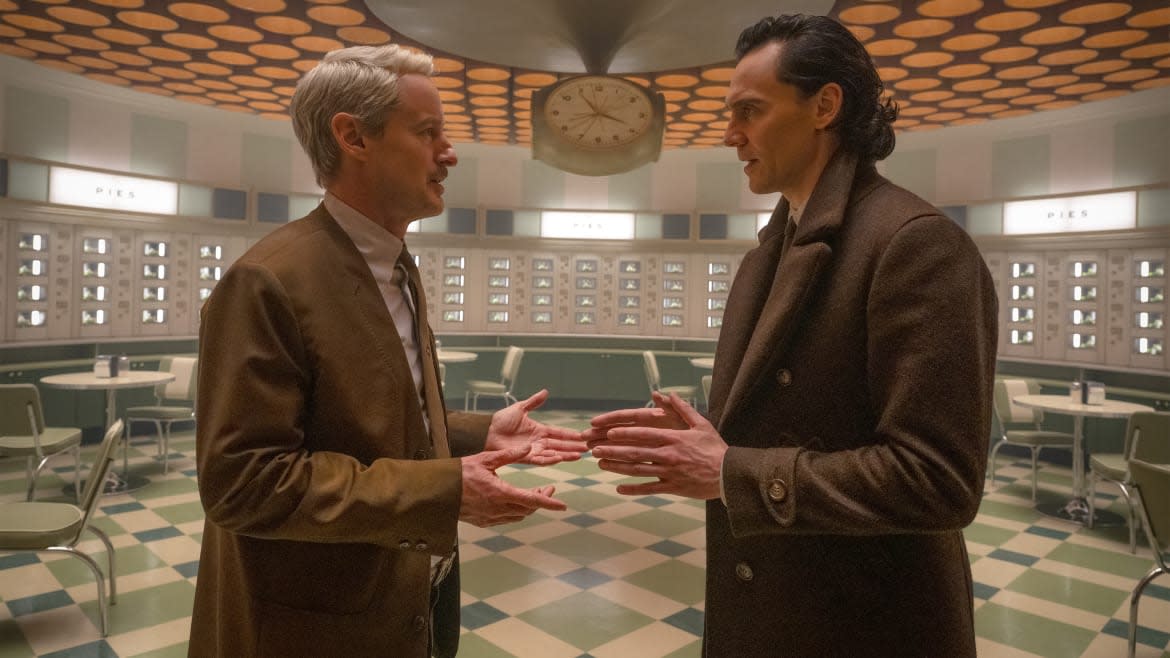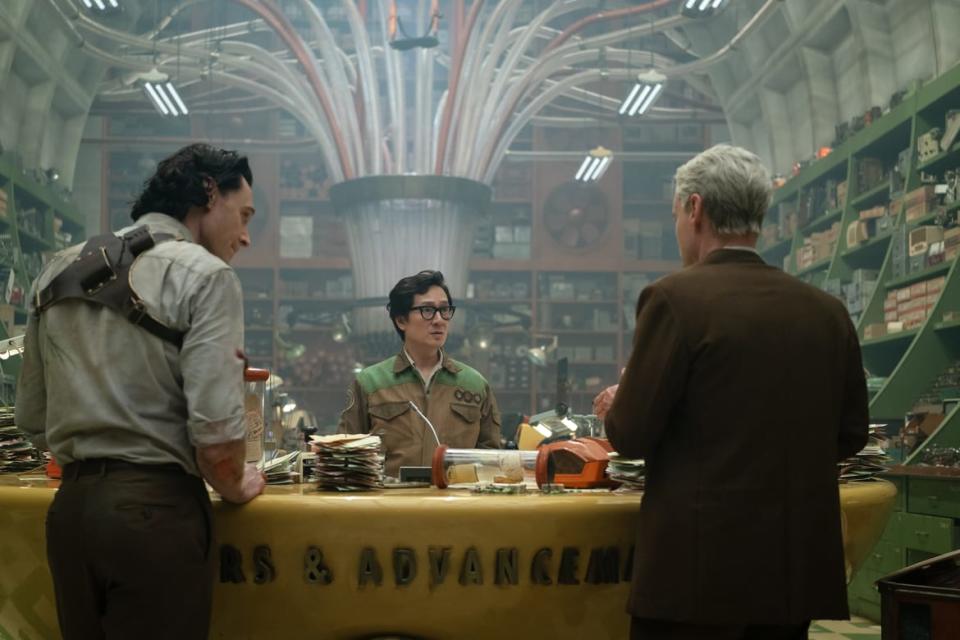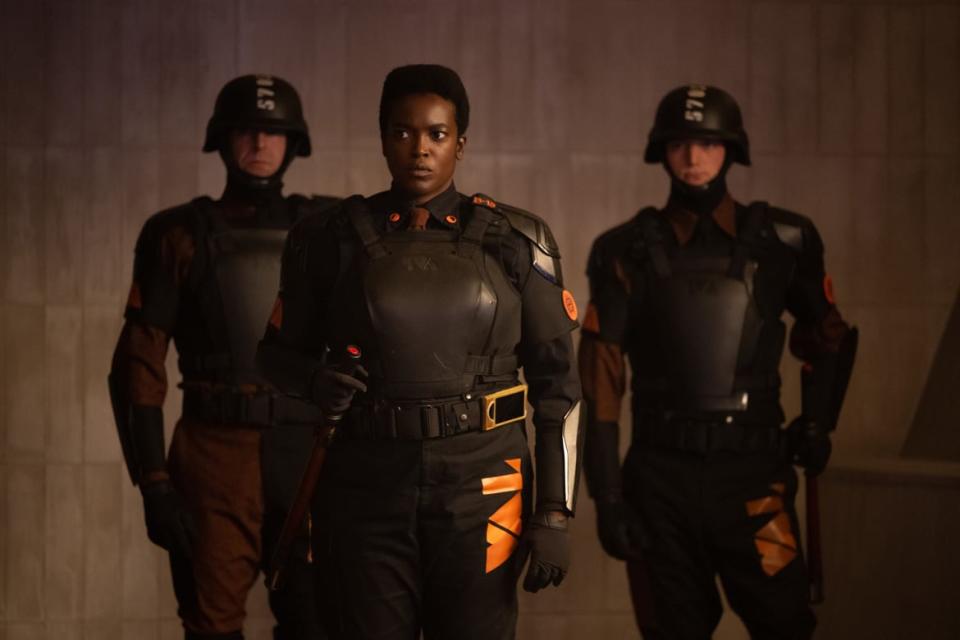‘Loki’ Season 2 Won’t Lift the MCU Out of the Dumps

“Hope is hard,” says Tom Hiddleston’s God of Mischief in the second season of Loki, and the struggle to stay optimistic extends to the Disney+ series itself. Despite a largely inventive first act, creator Michael Waldron and writer Eric Martin’s streaming affair remerges (October 5) during a rocky period for the Marvel Cinematic Universe, which is unraveling almost as quickly as the multiverse that Loki and his comrades are trying to mend. The show’s return engagement, unfortunately, doesn’t fix what’s broken and, in fact, contributes to the general sense that things are almost beyond repair. Its convolutions overwhelming its charming personalities and freewheeling spirit of paradox-laden adventure, it’s another indication that the once-mighty franchise has lost its direction.
(Warning: Spoilers ahead for Loki Season 2.)
Loki’s first go-round was an intricate saga concerning the Time Variance Authority (TVA), a retro-tech bureaucracy that governs every timeline across the multiverse. Those strands were all carefully arranged until the show’s season one finale, when everything was thrown into disarray by Sylvie (Sophia Di Martino), a female Loki variant who murdered the man behind the TVA: He Who Remains (Jonathan Majors), a version of Kang the Conqueror, the MCU’s new Big Bad. He Who Remains promised that his death would bring about a cataclysmic multiverse war instigated by his many doppelgangers. Initially, though, the result is a primary (i.e., Sacred) timeline splintering uncontrollably, thereby overloading the Time Loom—a monumental device that keeps these myriad threads in order—and threatening doom.
This is a big problem, as is the fact that Loki—having been kicked through a portal by his beloved Sylvie—is now hopscotching through time via a process dubbed “time-slipping.” He seeks assistance from the newest member of the cast, Ke Huy Quan, who participates as Ouroboros (or “O.B.” for short), who wrote the TVA manual and who works alone in a cluttered basement repair shop.

After hundreds of years of solitude, O.B. is called into action to solve Loki’s problems and, moreover, to help the former villain and his best friend, TVA officer Mobius (Owen Wilson), prevent the Time Loom from exploding. This involves utilizing TemPads, Throughput Multipliers and various other doodads and gizmos that are oh-so-vital to saving the day and yet, dramatically speaking, are just random items that Loki and company must acquire, build, repair and deploy before disaster erupts.
“I promise you this will make sense,” Hiddleston’s protagonist states, but the proceedings are better summed up by Mobius when he admits, “It’s like gibberish.” As a multiverse story, the series is naturally knotty, full of leaps between disparate eras and worlds, multiple lookalike characters, and temporal paradoxes. However, tumbling headfirst down its own rabbit hole, Loki twists itself up to the point of strangulating its original effervescent humor and rollicking energy.
‘Secret Invasion’ Is Yet Another Marvel Letdown. Samuel L. Jackson Deserves Better.
Despite plenty of running about, as well as visits to bygone ages—including 1982 Oklahoma and 1893 Chicago—the season’s first four episodes (which were all that critics received) rarely go anywhere of note. They curl in on themselves in a way that makes their stakes feel small, regardless of the fact that everyone is constantly proclaiming that the sky is falling.
Loki never shows us how its countless universes are being affected by this catastrophe. Consequently, when Sylvie and Hunter B-15 (Wunmi Mosaku) lament the millions of deaths brought about by the destruction of timelines, their sorrow is unrelatable; such tragedy feels remote and theoretical. Better is when Loki and Mobius are compelled to take trips out of the TVA in search of Ravonna Renslayer (Gugu Mbatha-Raw) and her villainous animated-clock partner Miss Minutes (Tara Strong), if only because the action’s yesteryear settings break up the monotony.
Helter-skelter plotting, though, means that conflicts are introduced and resolved at a breakneck speed that marks them as irrelevant and adds to the overarching impression that none of this is as important as the characters claim.

Directorially overseen by Aaron Moorhead and Justin Benson, Loki looks quite good for a Marvel series. Its humor, on the other hand, leaves a lot to be desired. So good in the first season, Hiddleston and Wilson’s rapport is barely developed in these new installments, their banter limited and tepid. Fresh off his Oscar win, Quan does an ever-so-slightly quirkier variation of his usual routine, and the rest scowl, yell, and seethe as the narrative demands.
TVA agent Brad (Rafael Casal) gets an inordinate amount of attention courtesy of his desire to live his former life—a decision driven by the revelation that TVA agents were stolen from their timelines and had their memories erased by He Who Remains. Alas, he’s a bore, as are the scripts’ intermittent arguments about free will, which come across as simply additional superficial embellishments for this whirligig contraption.
Hiddleston continues to be the ace up Loki’s sleeve, and he certainly gives the material his all, but his MCU baddie is mostly asked to look concerned and harried, and he’s rarely given the chance to put his devilish smirk and impish cunning to meaningful use. Worse is that even when he is, the moments are superfluous and leaden, and swiftly shunted aside in favor of additional sprinting this way and that.
‘Secret Invasion’ Finale Recap: Even the Avengers Couldn’t Save This Show
The sole individual provided with an opportunity to act is Majors, playing a nascent nineteenth-century He Who Remains named Victor Timely who speaks and acts like an excessively eccentric genius. It’s not a particularly compelling turn and it feels too minor for a figure destined to be the Avengers’ titanic adversary. Yet it’s still better than the bland nothing that Wilson, Mbatha-Raw, and Di Martino are tasked with turning into something.
Loki was one of Marvel’s early Disney+ bright spots, and its sophomore slump is therefore particularly disheartening, if not altogether surprising, considering that the franchise appears to have gone off the rails on both television and in theaters. Stretched too thin and invested too heavily in the exhausting and empty multiverse, the MCU seems devoid of a hub to which its numerous spokes might connect. Hope may yet remain for the entertainment-industry juggernaut, but as Loki further suggests, time is running out.
Keep obsessing! Sign up for the Daily Beast’s Obsessed newsletter and follow us on Facebook, Twitter, Instagram and TikTok.
Get the Daily Beast's biggest scoops and scandals delivered right to your inbox. Sign up now.
Stay informed and gain unlimited access to the Daily Beast's unmatched reporting. Subscribe now.

 Yahoo News
Yahoo News 
